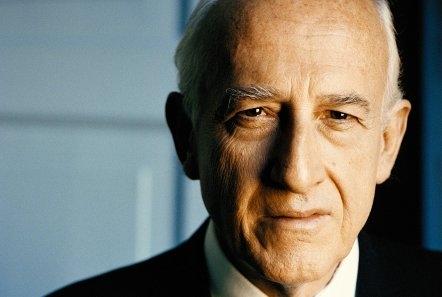Was it Chopin’s birthday or wasn’t it? To be honest, no one at last night’s Royal Festival Hall concert probably gave a damn, so wrapped up were they in Maurizio Pollini’s playing. And what playing it was too. The man just sits down and gets on with it – there’s none of that airy-fairy flamboyance and arm waving that certain younger pianists seem unable to perform without. This was an unapologetically old-school concert. Pollini shuffled on in his tails (who wears those any more?), plonked himself at the piano, and had finished the first of Chopin’s 24 Preludes before most of the audience had settled back for the ride.
The Preludes are a funny collection. I’ve never been convinced that they really fit together as a whole – it’s a little too like listening to the equivalent of a patchwork quilt, in a way that listening to Bach’s Well-Tempered Clavier most definitely is not. Yet Pollini somehow managed to make it work: he treated the preludes as a single unit of miniature movements, with the result that, if on their own some of the preludes seemed a trifle over-hurried, the cumulative effect was actually decidedly engaging and well paced.
So we had an E minor Prelude that fair rocketed through all those repeated chords – not so much largo as poco agitato. But it was balanced by an oasis of calm in the second theme of the F sharp major Prelude, the rarity of the occasion making all the more effective Pollini’s delicate application of the brakes. The constant onward drive made each gentle held-back moment cry out for attention, each true pianissimo infinitely more effective. There was the odd splash, and though in some of the runs and faster preludes Pollini’s goods-train forward motion threatened to derail itself, we were always just hauled back in time.
If at times the Preludes seemed slightly businesslike, then during the interval Pollini had relaxed into the occasion. The G minor Ballade was perfectly balanced, the second appearance of the theme only the tiniest fraction quieter than the first and yet taking us magically to another sound world. The D flat Op 27 Nocturne was the highlight of the evening; so beautifully still that it set itself up as the centrepiece to the concert, around which more turbulent music circled. Here both large- and small-scale gradings of dynamic and pace were as good as one could ever want.
Finally, we got eight of the Op 25 Etudes, and some more splendid Pollini moments. The apparent effortlessness of No 2, the diminuendo to the end of No 3, the glorious bass runs of No 7 – this was the great man enjoying himself, and the performances were assured and gripping. He seemed to be having so much fun, in fact, that he gave three encores. Chopin’s birthday or not, this was a concert to remember for the right reasons.
- The Southbank International Piano series continues on 16 March with Yundi and on 25 March with Yevgeny Sudbin.
- Check out what's on at the Southbank this season.














Comments
Add comment